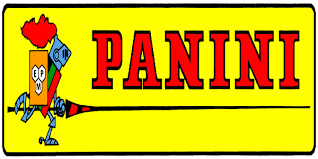Nothing to do for Panini group‘s project to list on Wall Street. In fact, the negotiations between the Italian group producing the iconic soccer players’ stickers and cards with the US Spac Slam Corp had failed, Bloomberg reported.
Slam Corp is the Spac promoted by the hedge fund Antara Capital, together with one of the greatest baseball champion players Alex Rodriguez, known as A-Rod, retired in 2017. Slam went public on Nasdaq last February after having raised 575 million dollars from investors (see the press release at the time).
Rumors about the existence of the negotiations had leaked out in mid-July (see here a previous article by BeBeez) and it is said that Panini operation might have been valued as much as 3 billion dollars. But in the end, nothing was done about it. As Bloomberg reported, in fact, the Spac withdrew from a possible deal because in the meantime Panini’s rival Fanatics Inc has signed exclusive contracts with the NBA (National Basketball Association, see here Forbes), NFL (National Football League, see here The Athletic) and MLB (Major League Baseball, see here ESPN), historical customers of the Italian group. Fanatics is a scaleup owned by a large group of private equity and venture capital funds. Fanatics raised $ 325 million last August (see The Wall Street Journal here), signed by well-known US rapper Jay-Z and his media company Roc Nation, from SoftBank, Silver Lake, Eldridge, TWG Sports & Entertainment, Insight Partners and Major League Baseball itself, which joined in Fanatics’ capital other well-known names, such as Fidelity Investments, Franklin Templeton, Neuberger Berman and Thrive Capital, bringing the valuation of Fanatics to 18 billion dollars, a few months after the previous round last March when the scaleup raised 320 million dollars bringing it to a valuation of 12.8 billions. The previous round, in August 2020, worth 350 millions, had led instead to a valuation of 6.2 billions.
The successes of Fanatics have also undermined the plans of another competitor, which is Topps, founded by former Disney’s ceo Michael Eisner, who in turn lost, as Panini did, a series of rich contracts with historical customers and who was negotiating too the listing on Wall Street through a business combination with a Spac, in its case Mudrick Capital Acquisition Corp II (see CNBC here).
Returning to Panini, we recall that last February the advisor Lincoln International had begun to circulate the dossier, called Project Cavalier, containing the group’s 2020 financial statements numbers, which indicate revenues of 800 million and an ebitda of approximately 230 millions, on on the basis of which Panini was said to be valued over 2 billion euros (see here a previous article by BeBeez).
Lincoln International is the same advisor to which in autumn 2018 the shareholders (the managing director Aldo Hugo Sallustro, chairwoman Anna Baroni and Maria Francesca Baroni) had given a mandate to identify potential investors interested in taking over the company. In January 2019 there were talks of a two-way short list, between an international private equity fund and a US industrial group (see here a previous article by BeBeez) and then in July 2019 it was said that the US group was in pole position (see here a previous article by BeBeez). At that time there were talks of an evaluation of one billion euros, slightly higher than 2018 revenues. However, nothing was done about that offer.
The almost one billion euros of turnover in 2018 had been achieved thanks to the World Cup and represented almost double the 536 millions in 2017 revenues, Italian market director Antonio Allegra, said in a presentation in January 2019. And in June 2019 Fabrizio Masinelli, Panni’s treasurer, confirmed to BeBeez that the final number would be close to what was said (see here a previous article by BeBeez). FY 2018 revenues were then 936 million. In any case, that figure had represented a really big leap, if you think that 2014, the year of the previous World Cup, Panini closed the budget with 758 millions in revenues and an ebitda of 198 millions (see here a previous article by BeBeez). On the other hand, 2019 closed with 676 million euros in revenues, an ebitda of 87.1 millions and a net financial debt of 155.2 millions (see here the Leanus analysis of the consolidated financial statements of the parent holding company ID4 Italia srl).
Panini was born in 1961, with the marketing of the first Calciatori collection, even though the Panini brothers had already managed a kiosk in Corso Duomo di Modena in 1945 and in 1954 the Fratelli Panini Newspaper Distribution Agency was born. Until 1988 the company was always managed by the Panini family, while that year it was sold to the Maxwell Group. Four years later, in 1992, Panini was bought by the then Bain Gallo Cuneo and the De Agostini group, who two years later resold it to the Marvel Entertainment Group. At the beginning of October 1999 the company returned to Italian ownership thanks to the management buyout financed by Fineldo spa, the Merloni family‘s holding company. Fineldo then left Panini’s share capital in 2016, collecting 79.7 million euros for its 23% stake and, as part of a leveraged buyout of 755 million euros in total, the ownership passed entirely to hand to the current shareholders (see here a previous article by BeBeez).



